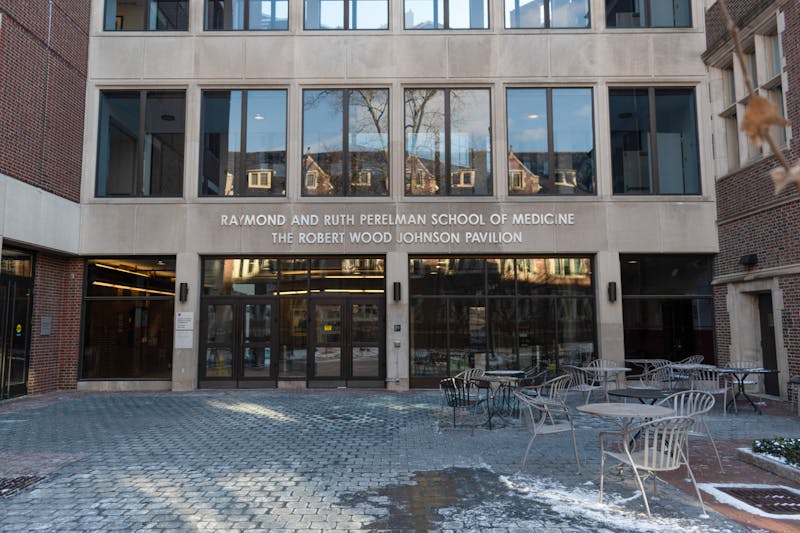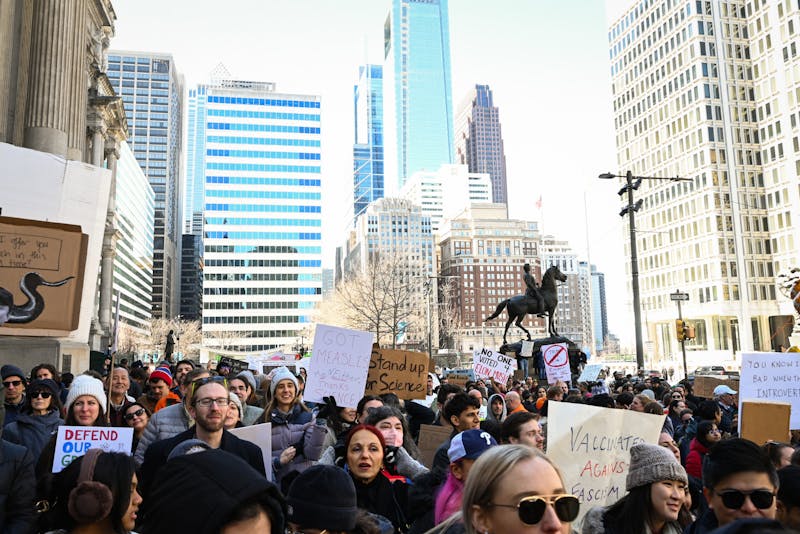The Wharton School — despite its fiscal emphasis, brutal curves and overabundant boat shoes — is, first and foremost, a resource. This is what I told myself as I walked into Accounting 101, my first venture beyond the lines of the College of Arts and Sciences.
Aside from having more money-focused classes, Wharton literally has more money to spend on its classes. Although per-student endowment figures for 2010 are unavailable, Wharton students in 2005 benefited from a per-student endowment of more than twice that of those in the College — $113,000 versus a paltry $55,000.
Ranked the number one undergraduate business program by U.S. News & World Report and the number one MBA program by The Financial Times, the opportunity to study at Wharton is simply unparalleled.
But despite its vocational pretense, it is important to remember that Wharton does not only cater to manic number crunchers and Wall Street wannabes.
According to the Wharton Undergraduate Division, more than 320 College students took Wharton classes last year. Out of three Accounting 101 sections this spring, approximately two-thirds of enrolled students hail from undergraduate schools beyond Huntsman Hall.
“Economics and business fluency [are] just as important to today’s graduates as language proficiency or knowledge of the humanities,” Wharton Undergraduate Division Vice Dean Georgette Phillips wrote in an e-mail. She encouraged students to try Accounting 101 or Marketing 101, depending on their post-degree plans.
But if a Wharton class is so imperative, why didn’t I take something light on the course load? Or at least something that sounds marginally interesting. Why not “Social Impact of Marketing” or “Sports Business Management?” Why Accounting 101?
“It’s not fascinating,” admitted Ricardo Reis, my Accounting 101 professor. But it is rumored to be the most applicable Wharton class, no matter your major.
Accounting offers students a “general cultural understanding,” Reis said. “We are confronted with corporations everywhere.” Why not learn how they work? Fair point.
There is no need to burn educational bridges for fear of a lower GPA or a lower morale. A liberal-arts education is a well-rounded education. We have four years to learn as much as we can. Let business take its place alongside arts and humanities.
Oftentimes, class material in Accounting 101 “relates to what you see on the news about the economy,” Reis explained. So far, Goldman Sachs’ recent deal with Facebook and Bernie Madoff’s financial scandal have both been delineated in class.
This modern relevance presents itself again in a “business of the day” — often selected by students — which serves as the focus for the lecture. “You end up getting contact with the world outside academia,” Reis said. Best Buy, Lego, Nike and Continental Airlines are among the corporations that have been chosen so far.
Taking a class in Wharton does not mean selling your soul to private equity. It does not mean cementing yourself into a consulting career. Everyone and anyone can invest in companies, whether from a desk in New York or from a library in Philadelphia.
Apple Inc. has 921 million shares outstanding. Not all of the investors graduated from business school. For every suited shareholder, there exists his or her liberal-arts counterpoint. For every hedge-fund investor, there is an equally savvy academic.
The Penn curriculum allows non-business students to take up to four classes in Wharton. If not for the sake of curiosity, experience, opportunity or affinity for vineyard vines, do it for access to group study rooms — granted for a semester to those who venture into the world of Wharton.
Emily Orrson is a College sophomore from Baltimore, Md. Her e-mail address is orrson@theDP.com. The Half of It appears every other Wednesday.
The Daily Pennsylvanian is an independent, student-run newspaper. Please consider making a donation to support the coverage that shapes the University. Your generosity ensures a future of strong journalism at Penn.
DonatePlease note All comments are eligible for publication in The Daily Pennsylvanian.







